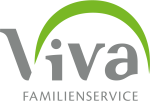Getting through winter with children without infections
And with autumn the time has come for infections like colds, influenza or RSV-infections. Especially children take home these illnesses from daycare or school. But what can you do to prevent those infections?
1. Nutrition
A balanced diet is something important at all times. The better the body is supplied with nutrients, the better the immune system can work. The German Nutrition Society has formulated 10 rules regarding this. Most important is to eat varied with mostly plant-based food, nimal foods should be used in a complementary manner. While dairy products are recommended for daily consumption, fish is recommended once or twice a week and meat only in small quantities.
Plenty of fresh fruit and vegetables should of course also be on the plate, as well as whole-grain products. Sugar and salt intake should be reduced. It is also important to drink enough, ideally plenty of water, herbal or fruit tea. Enough fluid intake ensures that the mucous membrane won’t dry out and can fight off viruses.
2. Sleep
Healthy and restful sleep will help to strengthen the immune system and mobilize the body’s defenses. There are many studies that deal with the optimal duration of sleep. The need for sleep actually depends not only on the age, but also on what type of person you or your child are.
The most important thing is that your child feels comfortable with his/her sleep pattern and is fit for the next day. A good room climate helps to ensure restful sleep. The room should always be well aired before bedtime. The temperature should not be higher than 18° Celsius at night.
3. Lots of fresh air
Plenty of exercise and fresh air help to strengthen the immune system. One to two hours a day is ideal. “There is no such thing as bad weather, only bad clothing” is a well-known saying.
With good reason. In autumn, rubber boots, mud pants and a warm rain jacket are your essentials. In winter, it is snowsuits and thermal pants. For the clothes underneath, the “Zwiebellook” is ideal: several layers are worn on top of each other. If it gets too warm for the children, they can take off one layer to avoid sweating.
4. Hygiene
Hands are the most common carriers of germs. Our hands regularly come into contact with germs and can transmit them to everything that is touched afterwards. Especially when shaking hands, germs easily spread from hand to hand. If you touch your face afterwards, the germs can invade the body via the mucous membranes and cause an infection.
Thorough hand washing interrupts this transmission route: wet hands under running water, rub hands with soap and clean hands thoroughly for 20-30 seconds, rinse soap under running water, dry hands with a clean, dry cloth.
Tip: You can find detailed hygiene tips and illustrative materials on hand washing, cleaning and more on the topic portal of the Federal Center for Health Education
… and which effects do the Corona hygiene measures have on our immune system?
To protect us from Corona, the measures of distance, hygiene measures and wearing a mask in everyday life were introduced in 2020. Because of these measures and the lockdown, not only the flu epidemic stayed away, there has been less contact with viruses and germs. Has this weakened all of our immune systems? The good news is that a large part of the immune system is native. It is present from birth and keeps a germ-specific immune defense on hand. The other part is the acquired immune system. This is built during the first years of life, as the body comes into contact with thousands of germs every day. Christine Falk, president of the Society for Immunology, said in an RND interview: “The immune system needs (…) perhaps a little more time to kick in. But the concern that wearing a mask, keeping your distance and ventilating will cause any damage to the immune system in the long run can clearly be answered with no.”














